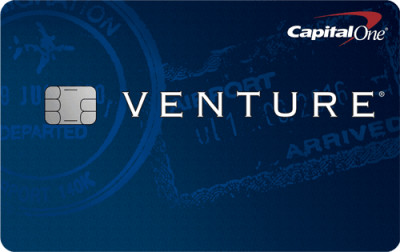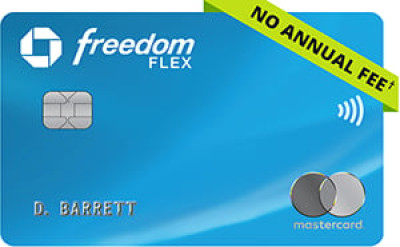Travel cards
Best Travel cards offers

The Chase Sapphire Preferred® Card is an excellent choice, particularly when you transfer points from other Chase cards to it. It offers an exceptional sign-up bonus, especially considering its $95 annual fee.
Pros and cons

The Capital One Venture Rewards Credit Card is renowned for its straightforward rewards program and flexible redemption options, making it a top choice among travel credit cards.
Pros and cons

The Chase Freedom Flex℠, while technically a cash-back card, offers an impressive 5% rewards rate for travel booked through Chase. This feature makes it a versatile and valuable option for travelers.
Pros and cons
FAQ
How do travel credit cards work?
Travel credit cards are specialized credit cards that offer various rewards and benefits tailored to travelers. Here's how they typically work:Earn Rewards: Travel credit cards allow cardholders to earn rewards for their spending. These rewards are often in the form of points or miles, and the card issuer may offer bonus rewards for specific categories like travel, dining, or gas purchases.Accumulate Points or Miles: As you make purchases using your travel credit card, you accumulate points or miles in your rewards account. The more you spend, the more rewards you earn.Redeem Rewards: Once you've accumulated a sufficient number of points or miles, you can redeem them for various travel-related expenses. Common redemption options include flights, hotel stays, rental cars, and even statement credits to offset travel charges.Additional Benefits: Travel credit cards often come with a range of additional benefits, such as travel insurance, purchase protection, airport lounge access, and no foreign transaction fees. These perks can enhance your travel experience and save you money.Annual Fees: Many travel credit cards charge an annual fee, typically ranging from $95 to $550 or more for premium cards. However, the rewards and benefits offered often more than offset this fee.Introductory Offers: Some travel cards offer generous introductory offers, such as a substantial bonus of points or miles for spending a certain amount within the first few months of card membership.Credit Score: To qualify for a travel credit card, you usually need a good to excellent credit score. The better your credit score, the more likely you are to be approved for premium travel cards with higher rewards.Travel Partners: Some travel credit card issuers have partnerships with airlines and hotel chains, allowing you to transfer your rewards to these loyalty programs for potentially even more value.Travel Protections: Travel credit cards often provide travel-related protections, including trip cancellation insurance, trip interruption insurance, rental car insurance, and baggage delay insurance.It's essential to choose a travel credit card that aligns with your travel preferences and spending habits. Carefully review the card's terms, annual fee, rewards structure, and additional benefits to ensure it fits your needs.
What credit score do I need to get a travel rewards credit card?
To qualify for a travel rewards credit card, you typically need a good to excellent credit score. Here's a breakdown of what credit scores generally correspond to these categories:Excellent Credit: A FICO credit score of 720 or higher is considered excellent. With an excellent credit score, you'll have access to the most premium travel rewards cards with the best rewards, benefits, and perks.Good Credit: A FICO credit score in the range of 690 to 719 is considered good. Many travel rewards cards are accessible to individuals with good credit scores. While you may not qualify for the highest-tier cards, you can still find cards with valuable rewards and benefits.Fair Credit: A FICO credit score in the range of 630 to 689 is considered fair. Some travel rewards cards may be available to those with fair credit, but the rewards and benefits may be less lucrative, and the annual fees could be higher.Poor Credit: If your credit score falls below 630, it's considered poor. It can be challenging to qualify for travel rewards cards with poor credit, but there are secured credit cards and credit-building cards that can help you improve your credit over time.Keep in mind that credit card issuers consider factors beyond just your credit score when making approval decisions. They also assess your income, existing debts, and overall credit history. Even if your credit score falls within the required range, other financial factors can impact your eligibility for a specific card.Before applying for a travel rewards credit card, it's advisable to check your credit score and review the card's eligibility requirements to ensure you meet the criteria. Applying for multiple credit cards within a short period can negatively impact your credit score, so it's essential to target cards that align with your credit profile.
What’s the difference between miles and points on a travel card?
The terms "points" and "miles" in travel rewards programs essentially refer to the same currency used to redeem rewards. Some credit cards use "points," while others use "miles," but they are interchangeable within the context of these programs.Historically, "miles" in airline frequent flyer programs denoted rewards based on the distance flown. However, many airlines have shifted to basing rewards on spending rather than distance, making "miles" more akin to "points." Some exceptions, like Alaska Airlines, still link rewards to distance.When it comes to redeeming rewards, there is typically no practical distinction between points and miles. The number of points or miles required for redemption is primarily determined by the cost of the item or service being redeemed.In summary, while there might have been historical differences, the terms are now often used interchangeably in modern travel rewards programs. The crucial factor for users is understanding the redemption value and how the rewards align with their travel preferences and goals.
What kinds of travel credit cards exist?
Travel credit cards typically fall into two primary categories: co-branded and general-purpose.Co-branded Travel Cards:Carry the name of a specific airline or hotel chain.Rewards earned are usually redeemable only with that particular brand or its partners.Provide specific perks, such as free checked bags or room upgrades, thanks to the partnership with the airline or hotel.Offer less flexibility compared to general-purpose cards.General-purpose Travel Cards:Issued by a credit card company and are not directly affiliated with a particular airline or hotel.Earn points in the issuer's proprietary program, like American Express Membership Rewards, Chase Ultimate Rewards®, or Citi ThankYou.Provide greater flexibility, as points can be used for various travel expenses, including flights on any airline or stays at any hotel.Lack the airline- or hotel-specific perks offered by co-branded cards.Choosing between these types of travel cards depends on personal preferences and priorities, with co-branded cards offering brand-specific benefits and general-purpose cards providing more flexibility in reward redemption.
Pros and cons of a travel credit card
Pros of Getting a Travel Card:Generous sign-up bonuses, often $500 or more, provide a significant head-start on travel expenses.Enjoy perks like free checked bags, airport lounge access, and primary rental car insurance, making travel more convenient and cost-effective.Earn rewards on daily expenses, with every dollar spent bringing you closer to your next trip or vacation.Good travel cards eliminate foreign transaction fees, saving you money when using the card abroad.Earn additional loyalty points or miles on top of standard rewards when using the right travel card for travel-related expenses.Redeem points strategically to maximize their value, whether booking travel, transferring to partners, or choosing different accommodation options.Cons of Getting a Travel Card:The best travel cards often come with annual fees, which may deter individuals who strongly oppose paying such fees.While sign-up bonuses are attractive, meeting steep spending requirements may not be feasible for everyone, especially if it involves accumulating debt.Infrequent travelers may not fully benefit from travel cards in the long term, especially if they don't use the card enough to offset the annual fee.Cash-back cards provide simpler and more flexible redemption options compared to some travel cards that limit rewards to travel-related expenses.Travel and rewards cards tend to have higher interest rates, making them less suitable for individuals who carry a balance and pay interest regularly. A low-interest card might be a better choice in such cases.